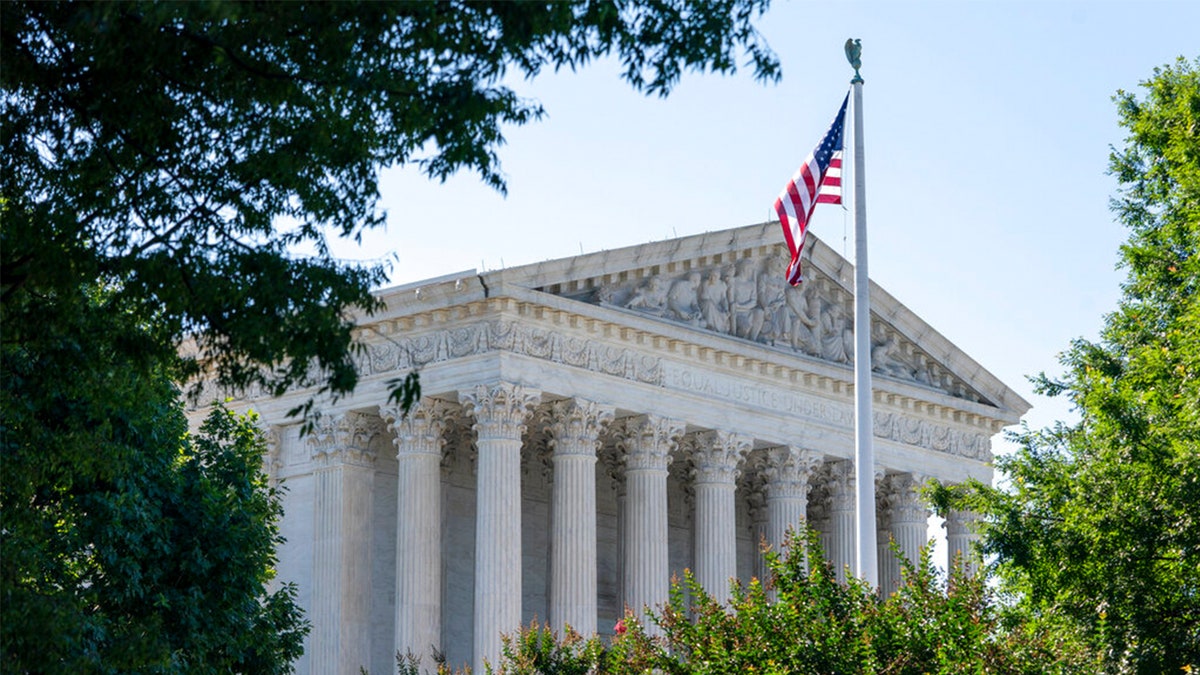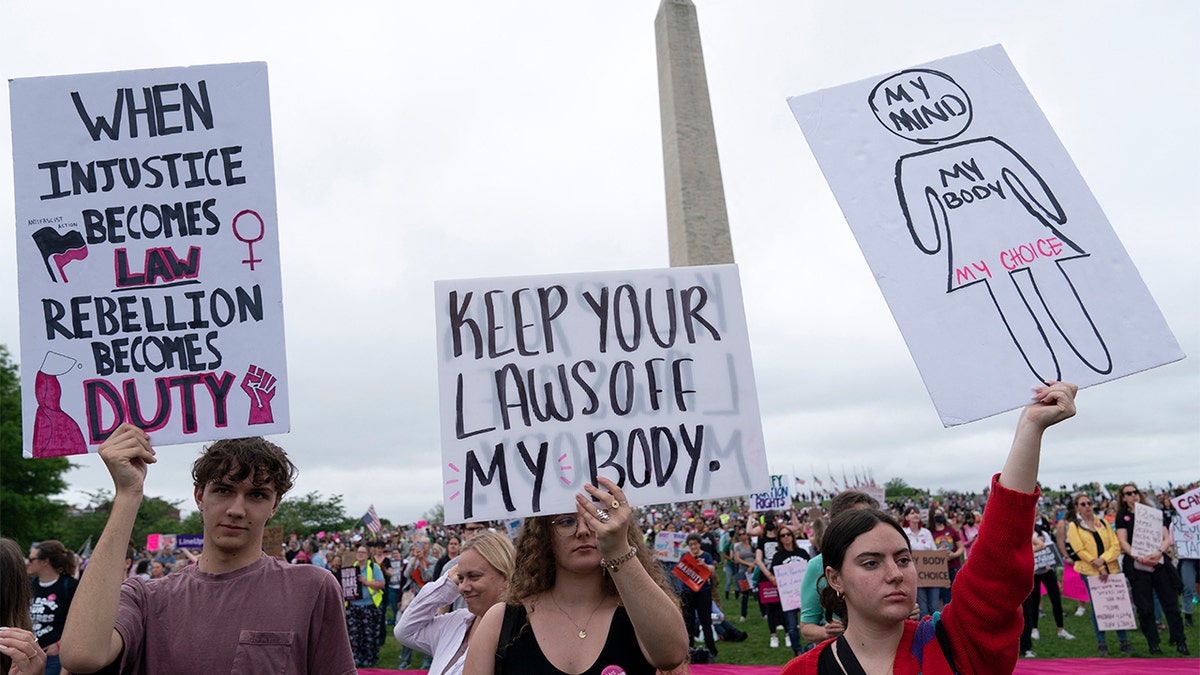Fox News Flash top headlines for July 8
Fox News Flash top headlines are here. Check out what's clicking on Foxnews.com.
The Supreme Court’s decision to let states decide their own restrictions on abortion signaled the end of privacy rights and the right to nonconformity, argued one legal scholar in the New York Times.
Frequent MSNBC guest analyst and NYU law professor Melissa Murray marveled at conservatives celebrating the overturning of Roe v. Wade, saying they were actually celebrating "the prospect of overruling privacy rights," for those who choose to "buck traditional ideas about sex and family."
In a guest essay for the Times, Murray argued the Dobbs v. Jackson Women's Health Organization decision could indicate the Supreme Court would overturn rulings on contraception and same-sex marriage, which would be, "un-American."

The Supreme Court is seen Wednesday, June 29, 2022, in Washington. (AP Photo/Jacquelyn Martin)
AFTER DOBBS, MSNBC LEGAL ANALYST PREDICTS PRIVACY WILL BE ‘ABOLISHED,’ DESEGREGATION NEXT
"There is something profoundly un-American about challenging these cases and the principles that underlie them, at least according to the American ideals that liberals and conservatives alike used to profess," she wrote.
Murray argued that conservatives may think departures from the traditional nuclear family were "aberrant and wrong," but they should instead view them as part of the American tradition of "pluralism, independence and resistance to the prospect of government compulsion."
She pointed to the right's reverence for free speech and gun rights in the First and Second Amendment as examples of how conservatives have embraced "nonconformity" and "individualism."

Abortion rights activist rally at the Washington Monument before a march to the U.S. Supreme Court in Washington, May 14, 2022. (Photo by JOSE LUIS MAGANA/AFP via Getty Images)
BIDEN TO TAKE EXECUTIVE ACTION ON ABORTION ACCESS FOLLOWING IMMENSE PRESSURE FROM DEMOCRATS
Murray concluded her opinion piece by suggesting that the right's reaction to Dobbs showed conservatives only wanted power to exclude opinions, races and faiths they did not like.
"Why is it nonconformity for me but not for thee? Some would argue that a stalwart vision of the Constitution rooted in the 1780s compels the conservative approach to these questions. Others maintain that these disjunctions are simply about power — about crafting a society in which everyone must conform to the vision of American life that contemporary conservatives desire."
"Either way, the loss of the right to not conform makes it harder for this country to continue as a multiracial, multiethnic, multifaith democracy. And perhaps that is the point," she wrote.
MSNBC legal analyst Glenn Kirschner made a similar argument on MSNBC earlier in the week, predicting that after the Dobbs decision, privacy rights would be nearly abolished.




















